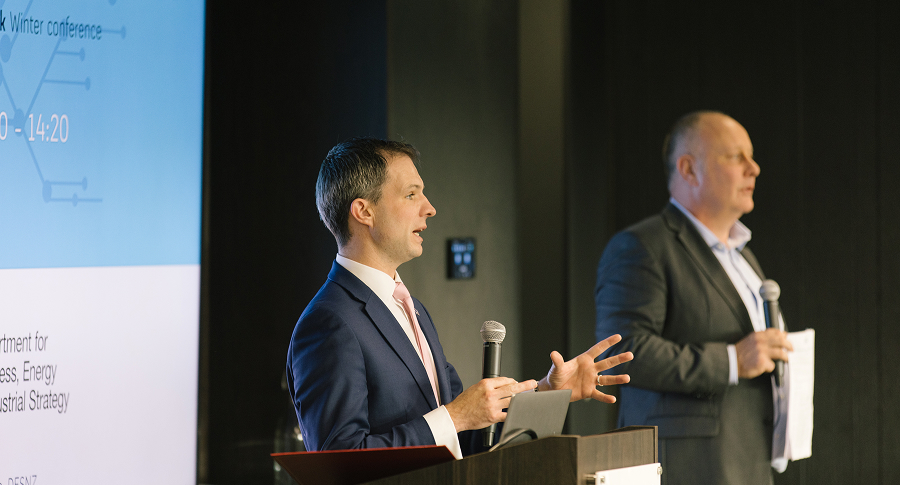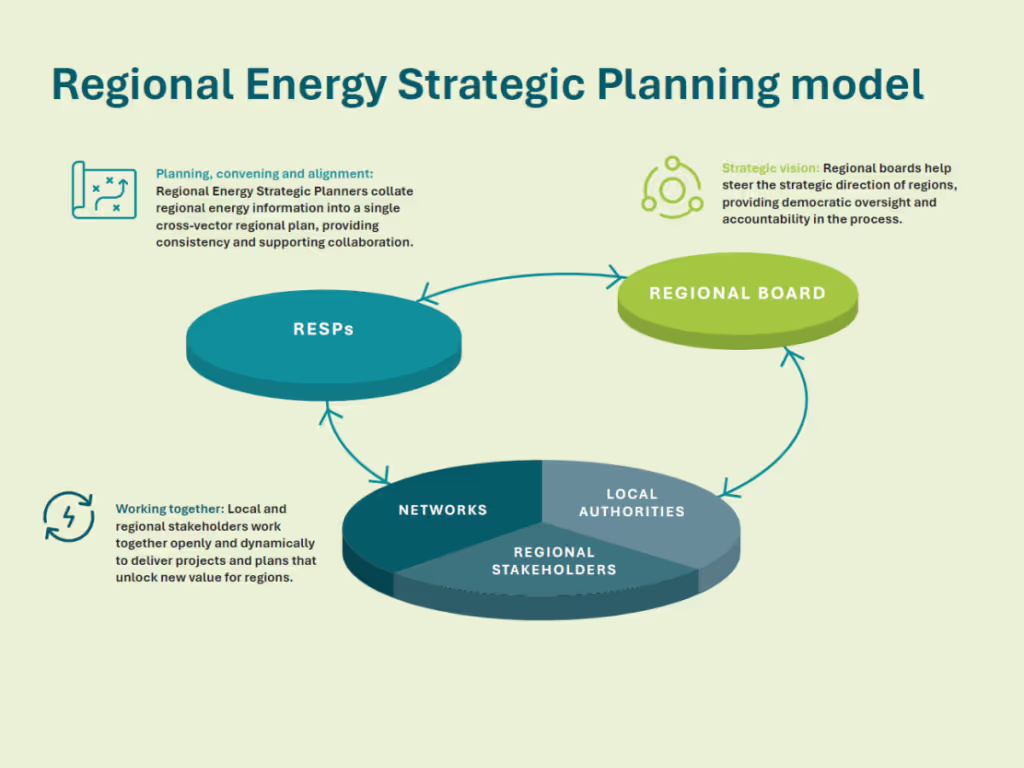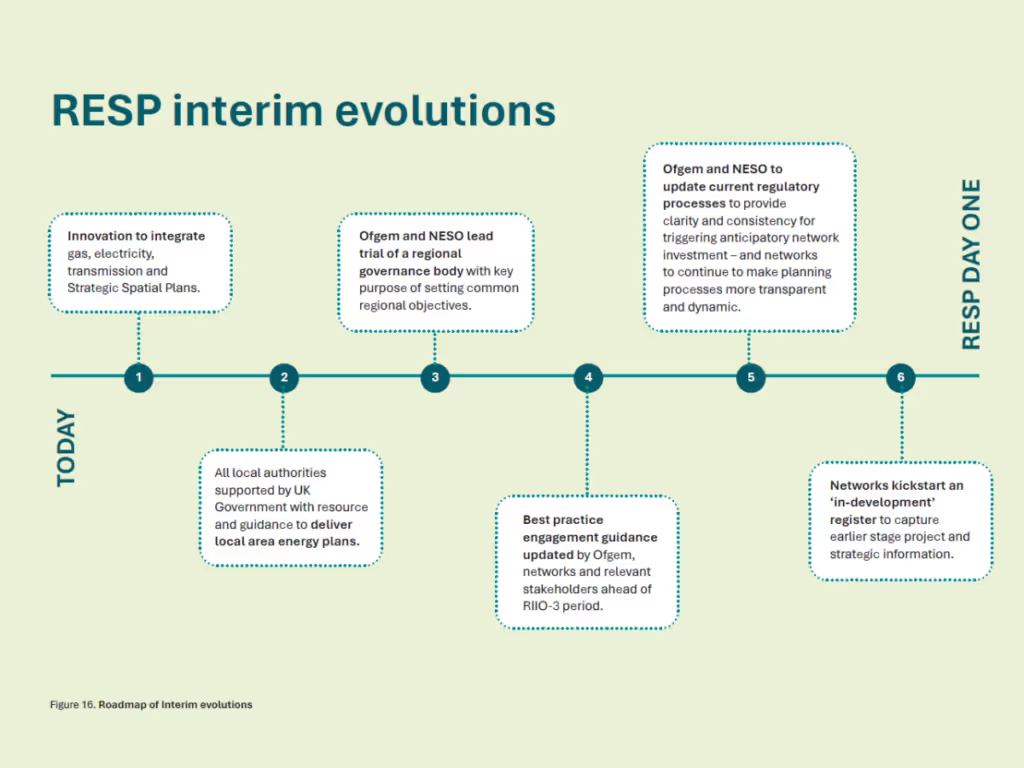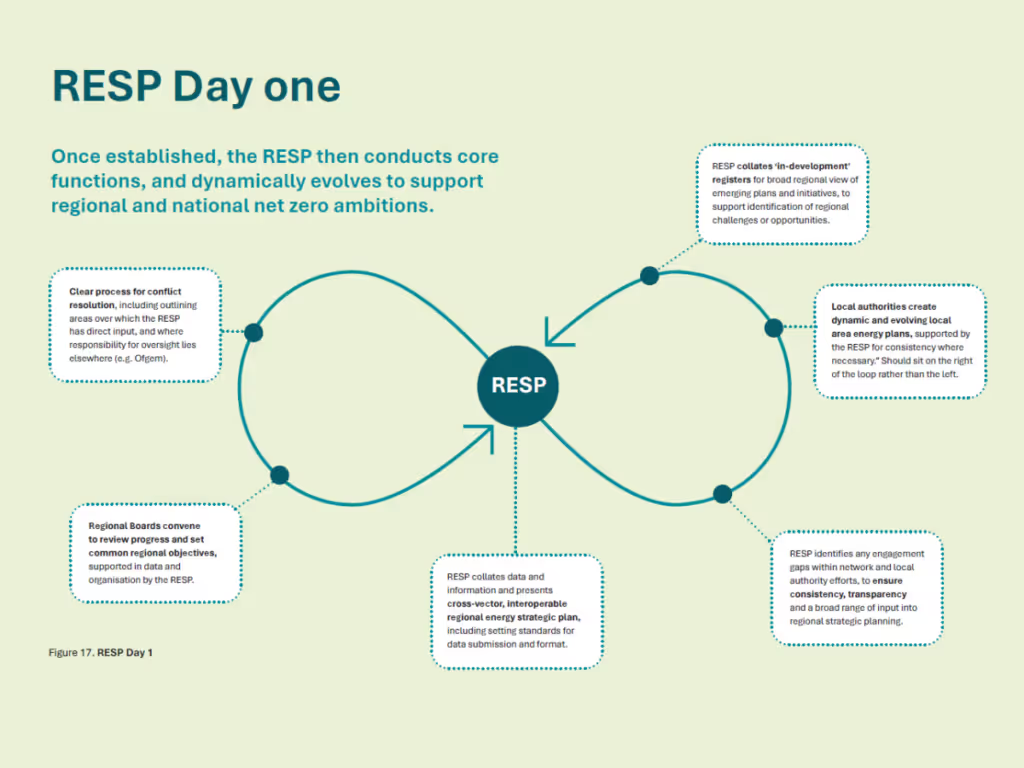This paper, sponsored by SSEN, sets out new thinking on the role of Regional Energy Strategic Planners and how processes today, such as network and local area energy planning, can evolve to unlock regional net zero ambitions.
.jpg)
This paper, sponsored by SSEN, sets out new thinking on the role of Regional Energy Strategic Planners and how processes today, such as network and local area energy planning, can evolve to unlock regional net zero ambitions.

Roadmap to RESP: Unlocking regional ambition explores what stakeholders want to see from the RESP and puts forward evidence-based recommendations for its implementation.
Through extensive stakeholder engagement, it outlines how the RESP might enable dynamic and collaborative strategic energy planning at a regional level. Noting that the RESP is not expected to be in place for some time, it also sets out how existing processes, such as network and local area energy planning (LAEP), can evolve to support this ambition in the interim.
Ofgem’s announcement of RESPs signals a step-change towards more substantial local and regional shaping of the UK’s net zero energy system. By delivering strategic energy planning at a regional level, RESPs create scope to tailor the future energy system to the needs and ambitions of different places – and enable a just transition through more localised democratic input and accountability in the process.
While the RESP will have a key role in collating data and delivering regional energy plans to help chart current and future demand in a region, its role in facilitating collaboration, democratic input and supporting stakeholders to work together in the process to realise shared goals will be critical to fully unlocking its success.

The RESP is also not expected to be in place for some time. However, processes today, such as local area energy planning and Distribution Future Energy Scenarios, already deliver strong regional input into the energy system. These processes can evolve ahead of the RESP being in place to enable more dynamic strategic planning at local and regional levels – maintaining momentum and allowing the RESP to hit the ground running.

This paper, sponsored by SSEN, sets out Regen’s thinking on how these processes can evolve to become more iterative, transparent and collaborative across a range of energy system, industrial, social and economic stakeholders – and where the RESP can build on this to add value in future. As such, we very much welcome your thoughts.

For net zero to happen, millions of decisions will be made at a local and regional level that, put together, will amount to transformational change of our energy system. It’s incredibly important that this process is co-ordinated, strategic and leads to the efficient delivery of the critical local infrastructure our communities need.
We are delighted to sponsor this important report from Regen, setting out how the introduction of Regional Energy Strategic Planners can build on the dynamic work already being undertaken by network operators such as SSEN and help join the dots between network planning, spatial planning and whole system energy policy.
It’s clear we don’t have time to waste. At SSEN, we’re taking action now, including rolling out our innovative LENZA tool and supporting the creation of Local Area Energy Plans in each of the areas we serve. The recommendations in this report set out how we can maintain this momentum, evolving network, planning, and regulatory processes as we approach RIIO3 – to allow the RESP to hit the ground running and accelerate action to achieve critical net zero targets.
Chris Burchell, managing director at SSEN Distribution
This report makes a series of recommendations to inform Ofgem and NESO development of RESP and kickstart sector-wide thinking on how the RESP can best function to enable value across the board.
These include:
Sign up to receive our monthly newsletter containing industry insights, our latest research and upcoming events.